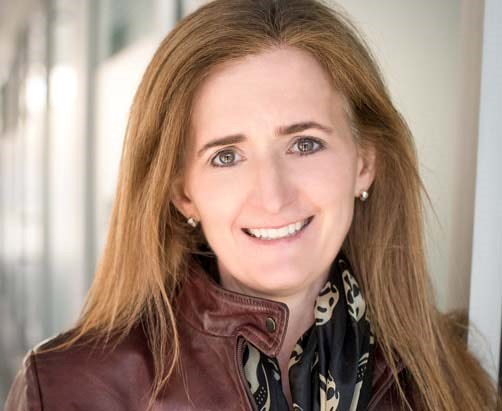Teachers in the Richmond School District, like their counterparts across the province, went back into the classrooms this week working under the terms of an expired contract.
Last week, mediation between the union representing teachers and the employer group was halted after the mediator determined that the two sides were too far apart in their bargaining positions – the teachers’ contract expired on June 30.
The B.C. Teachers’ Federation (BCTF) is warning that, if current proposals by the employers’ group were accepted, it would mean significant losses to Richmond.
BCPSEA, however, has said in a “For the Record” statement, that it wants “fair and reasonable workload supports” for teachers, but also to ensure school districts can address individual students’ learning needs, adding that their proposals won't result in job losses.
BCTF president Teri Mooring said the union was not expecting this bargaining round with the employer group to be easy. But they were surprised at the “significant concessions” that were tabled early on, especially given they were bargaining in a “different context,” that is, with a left-leaning pro-labour government.
Mooring said that B.C. Public School Employers’ Association (BCPSEA), that represents boards of education, is proposing “much larger” classrooms compared to what currently exist as well as averaging the number of specialist teachers across the province, which means larger school districts would lose some specialists teachers.
Currently, Richmond is one of the large districts that has more specialist teachers than the average across the province, Mooring said.
“Richmond and Surrey and Vancouver would all stand to lose those teaching positions that support students in various specialized ways,” she said.
The proposal being put forward by BCPSEA would eliminate specialist ratios, for example, how many counsellors or teacher-librarians there need to be based on the number of students, according to the union.
In addition, the employer group has suggested getting rid of composition language.
“Those concessions were tabled early on and they remain on the table today,” Mooring said.
BCPSEA, however, disagrees with the term “concessions,” saying in its statement “the BCTF appears to describe any proposal put forward by the employer as a concession while describing their own proposals as ‘improvements.’”
Furthermore, the employer group states that no teachers would lose their jobs if the package they are proposing is accepted.
“BCPSEA is so confident that our non-enrolling teacher proposal would not result in job losses that on July 11, we tabled a proposal that included a clause guaranteeing staffing stability for school districts,” BCPSEA said in its statement, adding “We note that the BCTF has omitted this information in its media interviews and continues to claim that non-enrolling positions will be reduced in districts.”
Liz Baverstock, president of the Richmond Teachers’ Association, estimated Richmond would lose 120 of the 310 full-time staff members that have been brought on since the restoration of the old contract language if the language currently put forward by BCPSEA was accepted.
Language around class size and the composition of classrooms (how many special needs students are allowed) was restored by the Supreme Court of Canada in 2016 after the BCTF challenged the provincial government saying they had been illegally stripped from teachers’ contracts in 2002.
This is the first round of negotiations after the old contract language around classroom sizes and the composition of students in a classroom was restored, so Mooring said the BCTF anticipated it wouldn’t be easy to update and negotiate a new contract.
When the restored language came back to their contract, they knew it wasn’t “set in stone,” she said, and they were happy to update the language. But updating is “very different” from seeking concessions, she said.
“Instead what was tabled was larger class sizes and fewer specialist teachers, so that’s not updating language,” Mooring added.
BCPSEA clarified, through its statement, that they were proposing a “baseline class size” with possible additional resources so that school districts could lower this baseline or customize workloads through the local level depending on what worked best for teachers in a particular learning environment.
The union is also asking for salary grid restructuring, like other public sector unions have received. At this point, it takes teachers between 10 and 12 years to reach to the top of the salary grid.
In addition, other public sector unions were able to negotiate “labour market adjustments,” something that is often brought in if there is a shortage of employees. Mooring said this would be applicable to teachers in B.C., who they claim are among the lowest paid in the country, but still have about 500 unfilled postings around the province.
“What we’re looking for is what other unions have negotiated successfully in this round,” Mooring said.
Despite stalled negotiations and gaps between the issues, Mooring said the union is bargaining “in a completely different context,” and she feels there is more respect for teachers from the current government compared to when negotiations took place under the BC Liberal government.
The mediator, David Schaub, was only booked until Aug. 30 with an understanding mediation might continue over the Labour Day weekend. But he concluded the sides were too far apart, and suggested a recess and to reconvene on Sept. 23 with a suggestion to resume mediation on Sept. 30.
According to Mooring, during this recess, the bargaining team will attend local general meetings, talk to its members and have internal meetings to figure out how to move forward. But, she added, the “hard work” needs to happen at the bargaining table, she added.
According to a statement from BCPSEA, the mediator concluded that there were too many outstanding issues. At that time, the parties could meet with him on Sept. 23 “to determine if a path forward can be identified.”
BCPSEA told the Richmond News they aren’t doing interviews at the moment, but provided statements in response to various media reports.
David Sadler, school district spokesperson, said that Richmond schools will provide regularly scheduled classes while negotiations take place.



